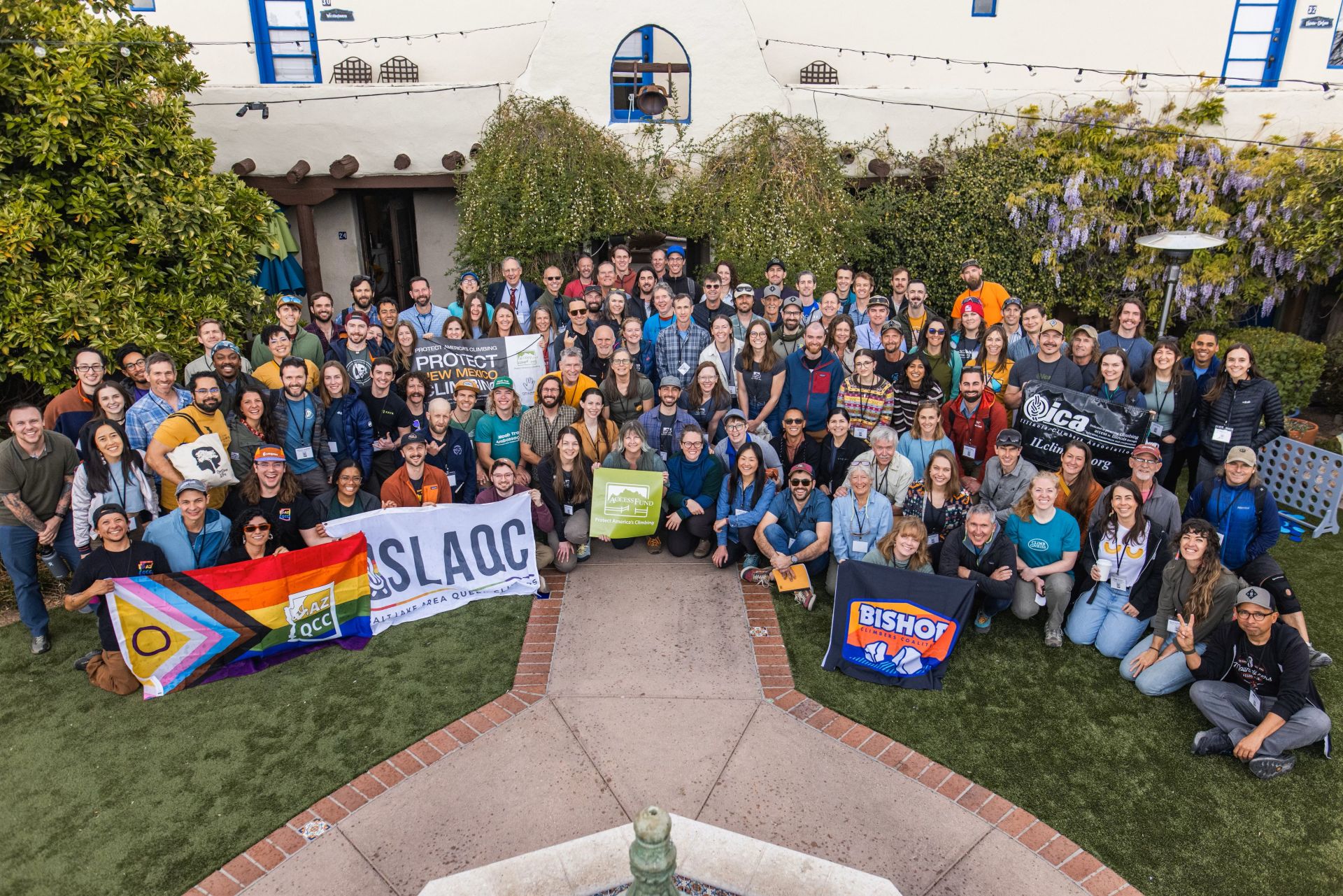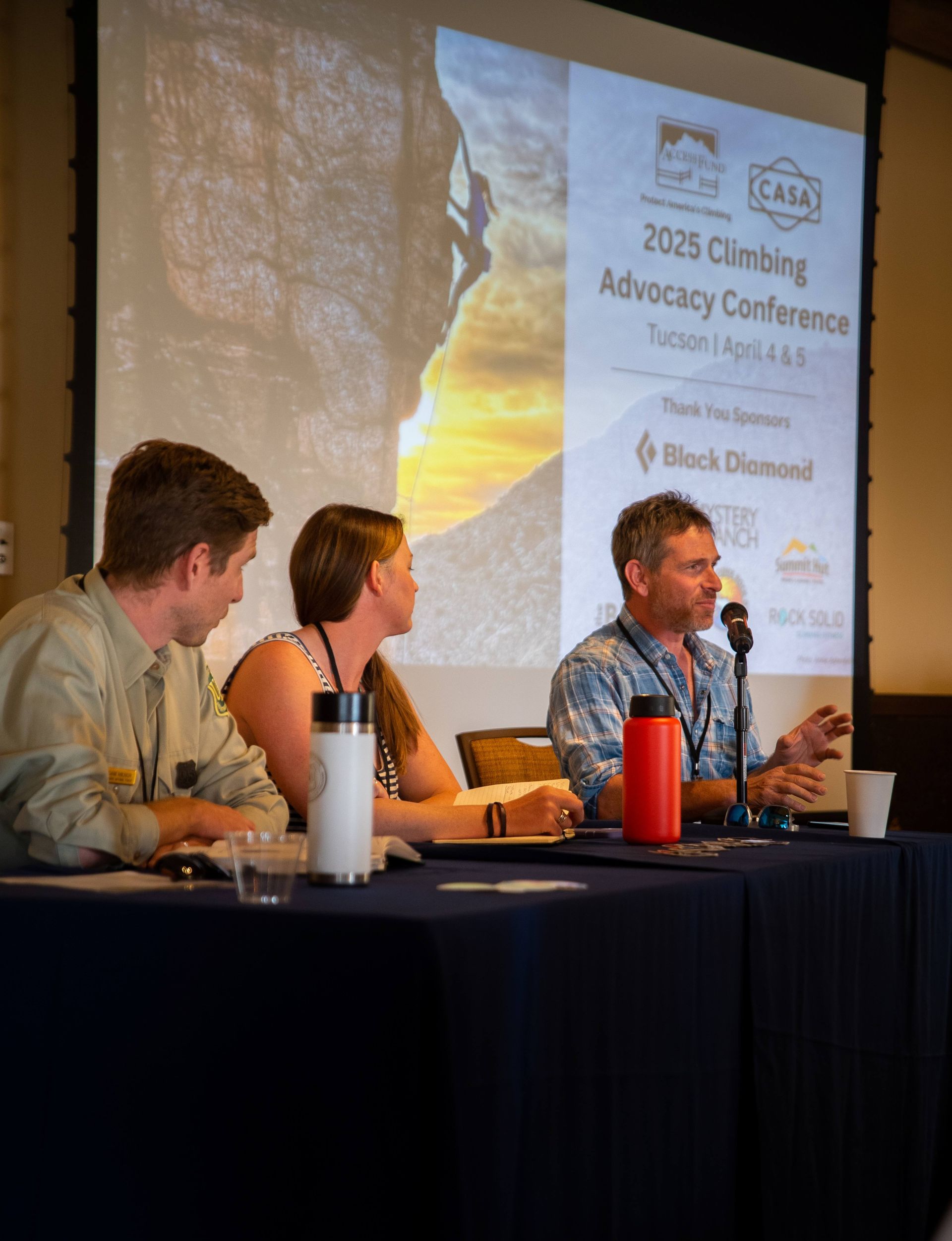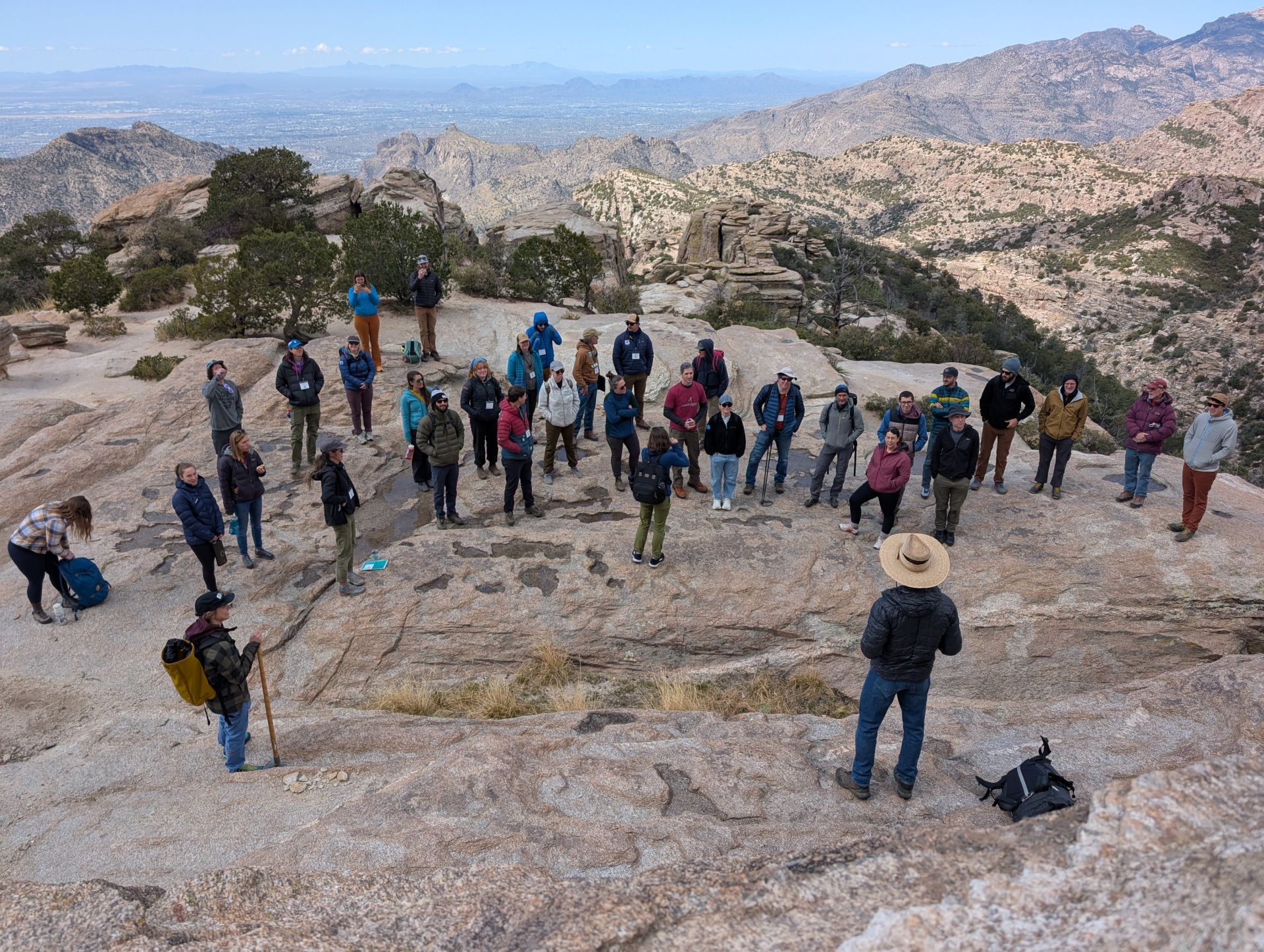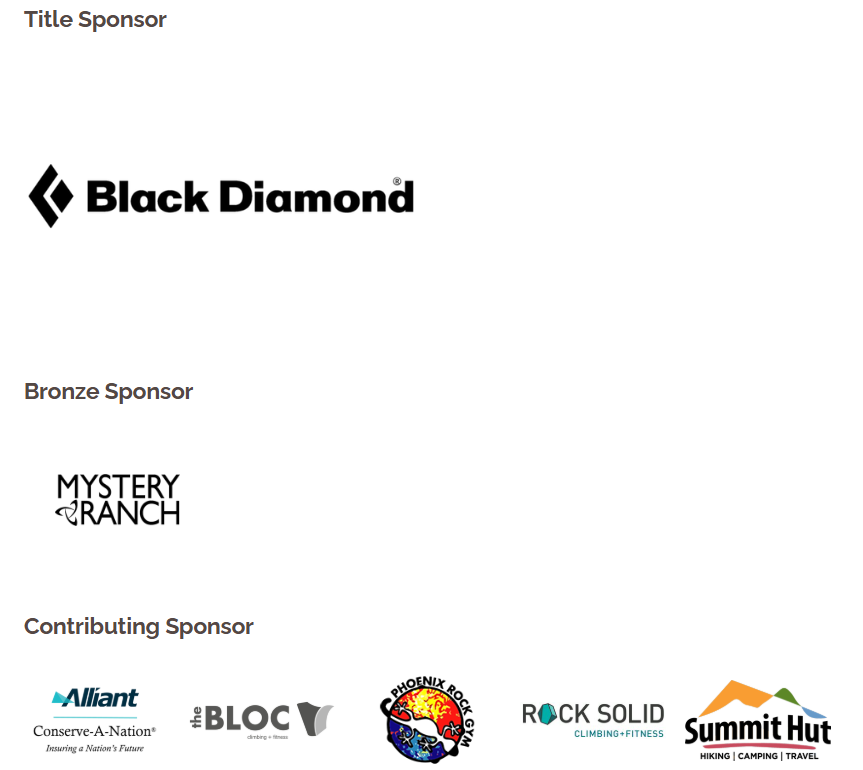Climbing Advocacy Conference 2025

160+
70+
25
Below are presentations and additional resources from sessions.
To get connected to a speaker, email conference@accessfund.org.
Friday, April 5th
1. Working With Private Buyers: Achieving a Conservation Outcome and Avoiding Private Inurement
When purchasing a crag, local climbing organizations (LCOs) are not always able to work directly with the seller. In certain cases, it makes sense to work with a private buyer who can step in, purchase the crag temporarily, and transfer ownership to an LCO. This session focused on best practices when working with private buyers that will help all parties achieve a conservation outcome while avoiding any private inurement.
Moderator:
Brian Tickle, National Acquisitions & Texas Regional Director
Speaker:
Jereme Ransick, Access & Acquisitions Chair, Red River Gorge Climbers’ Coalition
Speaker:
Group presentation below.
Click the arrow in the top right for the full version.
Ransick's presentation below.
Click the arrow in the top right for the full version.
2. Stewarding Indigenous Lands
Gain insights from experts on planning stewardship initiatives that incorporate Indigenous perspectives and expertise. Across the country, local tribes and trail builders are collaborating to establish access that is both sustainable and respectful. This session explored case studies and best practices for building stewardship projects that protect cultural resources and foster meaningful partnerships with tribal communities.
Moderator:
Andrea Hassler, Stewardship & Education Director, Access Fund
Speakers:
Matthew Nelson, Executive Director, Arizona Trail Association Aeon Albert, Hopi Program Manager, Ancestral Lands Conservation Corps
Gabriel Cisneros, Board Member, Washington Climbers Coalition
Andrea Hassler, Stewardship & Education Director, Access Fund
Speakers:
Gabriel Cisneros, Board Member, Washington Climbers Coalition
Nelson's presentation below.
Click the arrow in the top right for the full version.
Cisneros's presentation below.
Click the arrow in the top right for the full version.
3. Keep it Local: Climbing Management on Municipal Lands
The approach to managing climbing varies based on the type of resource and the land managers involved. This session highlighted case studies from counties, cities, and municipalities, demonstrating how local climbers build strong relationships to secure reliable access to climbing areas. Topics included initiating conversations, examples of successful agreements, and ways climbers and local land managers can work together to support shared goals.
Moderator:
Daniel Dunn, Eastern Regional Access Director & Policy Analyst, Access Fund
Speakers:
Donna Tannehill, Representative, Arizona Mountaineering Club
Alexandra Johnson, Communications Director, Bay Area Climbers Coalition
Daniel Dunn, Eastern Regional Access Director & Policy Analyst, Access Fund
Speakers:
Alexandra Johnson, Communications Director, Bay Area Climbers Coalition
Tannehill's presentation below.
Click the arrow in the top right for the full version.
Johnson's presentation below.
Click the arrow in the top right for the full version.
4. Breaking Barriers & Enhancing Accessibility
Our community is stronger when we work together to ensure climbing is accessible for everyone. Our speakers for this session represent the deaf climbing community with years of experience working and advocating in the climbing industry and conservation field. They discussed ways to reimagine events and programs, such as stewardship projects and climbing festivals, that will enable inclusivity for people who are deaf and hard of hearing.
Moderator:
Andrea Hassler, Stewardship & Education Director, Access Fund
Speakers: Sam (Marlo) Bragg, Field and Logistics Director, CorpsTHAT
Sonya Wilson, Founder, ASL Climbing Network & ASL Educator
Andrea Hassler, Stewardship & Education Director, Access Fund
Speakers:
Sonya Wilson, Founder, ASL Climbing Network & ASL Educator
For consultations and follow up questions on this session, contact -
- Sam Bragg at sam@corpsthat.org
- Sonya Wilson at deafclimber@gmail.com
https://sonyawilson.com
5. Roy New Mexico Case Study
The Access Fund's stewardship team discussed their collaboration with the New Mexico Climbers’ Resource & Advocacy Group and US Forest Service & Grasslands to develop Roy, New Mexico, a renowned - and up and coming - bouldering destination. The speakers shared insights into working with the Forest Service and local developers to identify impact “zones” for managing existing and future trails in this boulderfield. They also covered efforts to map bouldering areas and address key infrastructure needs, including roads, parking lots, and campsites.
Moderator:
Andrea Hassler, Stewardship & Education Director, Access Fund
Speakers: William Penner, Board Member, New Mexico Climbers’ Resource & Advocacy Group Loryn Posladek, Field Coordinator, Access Fund
Andrea Hassler, Stewardship & Education Director, Access Fund
Speakers:
William Penner, Board Member, New Mexico Climbers’ Resource & Advocacy Group
Loryn Posladek, Field Coordinator, Access Fund
Group presentation below.
Click the arrow in the top right for the full version.
6. The Impact of Volunteer Raptor Monitoring Programs
Local climbing organizations are partnering with land managers to use citizen science in tracking and conserving raptor populations while balancing access to climbing. In this session, we covered how the Boulder Climbing Community set up their volunteer raptor monitoring program with local climber-biologist, Rob Ramey. This case study showed how successful volunteer programs can be and the impact it's had on land manager relationships.
Ramey's presentation below.
Click the arrow in the top right for the full version.
7. LCO Development: Nonprofit Compliance
To advocate effectively for local climbing access, many local climbing organizations (LCOs) choose to establish themselves as nonprofits. However, this status comes with important requirements and best practices, including maintaining tax exemption, meeting fundraising standards, managing a board, and more. This session covered the key elements of compliance to help you ensure your LCO can continue its vital advocacy work.
Townsend's presentation below.
Click the arrow in the top right for the full version.
Manzanares's presentation below.
Click the arrow in the top right for the full version.
8. Engaging on Federal Management Plans and Policies
Throughout the history of climbing advocacy, local climbing communities have played a significant role in shaping federal planning efforts. Input from local climbers is essential for assisting public land managers and agencies in effectively managing climbing areas across the United States. In this session, we explored climbing management success stories and strategies for engaging your climbing community and examples of climbing management plans.

Saturday, April 5th
This event was proudly planned in
partnership with:
Write your awesome label here.



